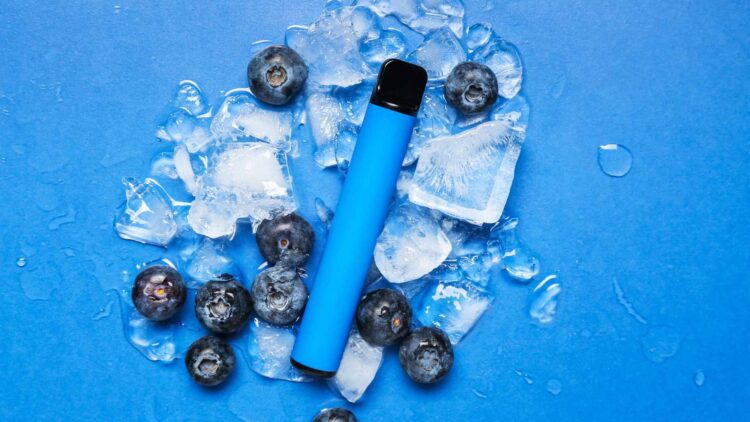We all know that smoking is bad for you, and the preferred alternative nowadays, vaping is not any better, but new research suggests that some flavors might be doing even more damage than others. In particular, scientists from McGill University in Canada have found that berry-flavored vapes, in particular, could be harming your lungs more than other varieties.
When studying and testing the effects of different vape flavors on mice researchers discovered that exposure to berry-flavored vape disrupted the function of important immune cells in the lungs, called alveolar macrophages. These cells play a crucial role in keeping your lungs clean by removing bacteria and other harmful particles and when exposed to the sweet berry vapor, they struggled to do their job, which could potentially lead to serious infections, breathing problems, and even life-threatening illnesses.
The effects of berry flavor vapes on the lungs
While the berry-flavors had a clear negative effect, the study found that mice exposed to menthol or flavorless vapes did not experience the same negative effects. According to the scientists, this suggests that certain chemicals used to add flavor to e-cigarettes could be particularly harmful to lung health, however, many vape flavors, not just berry, contain chemicals linked to lung damage so if you vape you are not safe regardless of the flavor you use.
The study specifically looked at a berry vape liquid called “Razzy3Some”, which was chosen because berry is one of the most popular vape flavors. Vaping works by heating a liquid, usually a mix of nicotine, propylene glycol, vegetable glycerine, and flavorings, so it can be inhaled as vapor. Co-author of the study, Ajitha Thanabalasuriar, told MailOnline, “From our study, we see that the more complex flavors and additives you add to e-cigs, the more bad outcomes on immunity.”
As vaping has become more popular, especially among younger people, researchers are uncovering more evidence that it is not as harmless as many believe. Nicotine is well-known for being bad for heart health, but vapes also contain various chemical additives and flavoring agents, which could have additional harmful effects. To investigate, scientists exposed groups of mice to different environments for ten days; some were placed in a box with clean air, others were exposed to berry-flavored e-cigarette vapor, and another group inhaled flavorless vapor.
After the ten days were over in each category, researchers analyzed the mice’s alveolar macrophages under a microscope. These cells live inside tiny air sacs in the lungs, where they help fight infections by removing harmful particles. Usually, these cells are constantly moving, patrolling the lung tissue, and clearing out anything that shouldn’t be there but in the mice exposed to berry-flavored vapes, the macrophages became sluggish and less effective at their job.
Surprisingly, the mice exposed to menthol or unflavored vapor showed little to no difference from the control group that breathed only clean air. Their immune cells kept moving and functioning normally. According to Dr. Thanabalasuriar, “The macrophages move around our airways vacuuming up debris and infections. Berry vapes but not flavorless hinders this movement.”
To see if this had real health consequences, researchers then exposed the mice to a bacteria called Pseudomonas aeruginosa, which is commonly found in the lungs of smokers. In healthy mice, the bacteria did not cause any major issues because their immune cells were able to clear it out, however, the mice that had been exposed to berry-flavored vape had significantly higher bacterial counts a week later, showing that their immune systems were not working as well. Some of these mice even had slightly higher mortality rates.
For humans, this does not necessarily mean vaping berry flavors is deadly, but it could mean vapers have a harder time fighting off lung infections and might need stronger medications, like antibiotics, to recover.
Dr. Thanabalasuriar summed it up by saying, “We need to be careful about the types of flavors that we’re including in these products as they can have detrimental effects. That’s really the take-home message, especially some of these vaping products that are marketed for kids. The way they’re sold, the type of containers they are sold in—it’s very colorful, it’s really attractive to children, and this can be a really bad thing for our future.”

